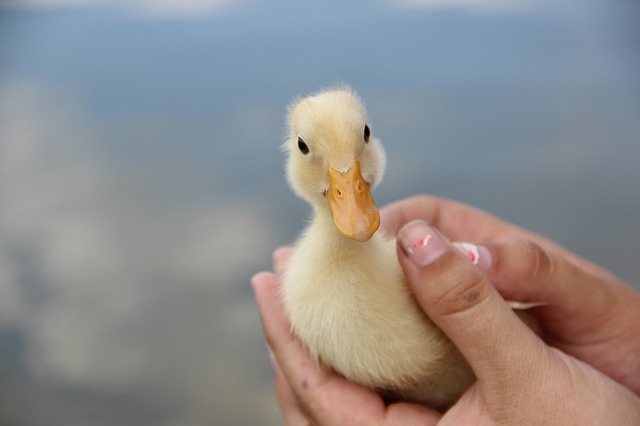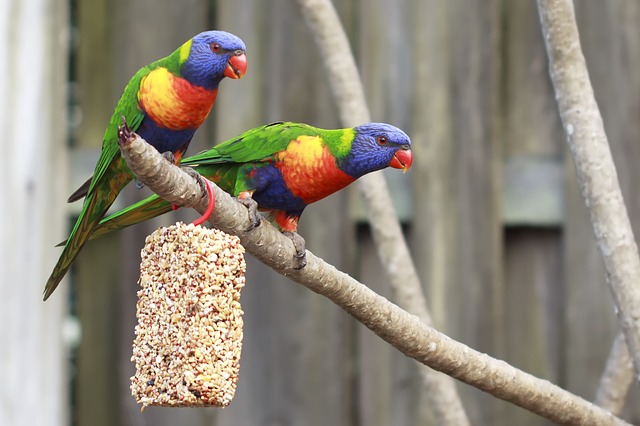Estimated reading time: 13 minutes
Babies are naturally curious and mobile enough to get around themselves, but what do we do if the baby ingests bird poop? Other than immediately freaking out and assuming the worst, what steps should a parent take after their baby eats bird feces?
To begin with, the very first steps you should take if your baby has ingested bird poop are:
- Give your baby water.
- Wash their face and hands thoroughly with antibiotic soap and water.
- Observe them for symptoms that are similar to those of food poisoning.
- Diarrhea
- Low-grade fever
- Nausea
- Vomiting
If these symptoms become severe or persist, you will need to bring your baby to the doctor. If symptoms begin a few weeks after your baby ingests the poop, definitely bring the infant to the doctor.
Symptoms beginning a few weeks after ingestion of the poop points to the presence of harmful bacteria or parasites in your baby’s stomach or intestines. If this happens, it’s very important that you see a doctor for tests to be run.
Remember that you are your baby’s parent, and, more often than not, you will know immediately when something is very wrong. When you feel that your baby is not well and can see the symptoms of illness after knowing your child ingested bird poop, it is wise to see medical attention as soon as possible.
What is in Bird Poop That Can Make My Baby Sick?
Honestly, the easier question to answer is, “What is NOT in bird poop that can make my baby sick?” The answer to that question is – very little. There are numerous harmful bacteria and parasites that make their home in feces and coming into contact with infected feces is the number one way to become infected with said bacteria and parasites.
According to Medical News Today, birds can carry over 60 types of diseases in their droppings.

The Most Common Diseases Carried in Bird Poop
While it is said that bird feces can house over 60 diseases, there is not a 100% guarantee that your child has been exposed to 60 diseases when he or she ingested bird poop. However, it is wise to be familiar with the most common sicknesses that are spread through bird droppings.
Histoplasmosis is a lung infection caused by a fungus found in bird droppings that can be fatal. Ingestion of the feces isn’t the only way to infect a human, either. The fugal spores can be breathed in.
Salmonellosis is an illness that affects the intestinal tract, mimicking food poisoning, that can cause typhoid fever in some cases.
E. Coli is another illness found in bird feces that affects the intestinal tract. It can even be ingested through water or food contaminated by the bird droppings.
Cryptococcosis is another lung infection that is caused by a fungus that lives in bird droppings. The fungus doesn’t even have to be ingested; inhalation of the fungus can infect a human.
Psittacosis is an inflammatory lung disease that is passed through bacteria in bird droppings. The symptoms can mimic the flu, with more severe symptoms causing inflammation of various internal organs.
How am I Supposed to Know if My Baby is Sick?
To be frank, you will not know right away if your baby has contracted an illness from ingesting the bird poop. In fact, it could take a few weeks for the symptoms to show if your child did ingest something that made them sick.
The best thing to do in the case of accidental bird poop ingestion is to be proactive. The most common illnesses spread through feces will have intestinal symptoms, namely diarrhea. Keep a close eye on your baby’s bowel movements and keep your baby very well hydrated.
The most important thing to do in cases like this is to remain calm. Any time a parent feels that his or her baby has come into harm or been exposed to sickness, it can be extremely stressful. However, there is no need to panic and cause your baby stress if you do not know that there is any immediate danger.
What do I do When I Notice Symptoms of Sickness?
In the case of an infant, most sicknesses can turn severe very quickly, so it is recommended that you contact the baby’s doctor as soon as you notice symptoms. The doctor will run tests to see if he can pinpoint the cause of your baby’s symptoms, so he can properly treat the illness.
Diseases like histoplasmosis and cryptococcosis, for instance, are fungal infections that will require antifungals to treat. Diseases that are spread through bacteria can normally be treated with antibiotics. Diseases that are caused by parasites may need special treatments or medicines to kill the parasites.
Knowing which sickness your child is suffering with will help the doctor come up with a treatment plan that will work.
Are There More Serious Illnesses I Should Worry About?
Because of a baby’s young and weak immune system, even sicknesses that a healthy human wouldn’t get can infect it. A bacterium called Clostridium difficile, commonly knows as C. diff, can cause a world of trouble for your infant.
In recent years, this sickness has become more common and has resulted in more severe symptoms. About half a million people in the United States each year will catch this infection, and recurrent infections are on the rise.
Mild to Moderate C. diff Infection
If your infant has contracted C. diff, the mild form will show symptoms of watery diarrhea three or more times a day for more than two days and mild abdominal cramps and tenderness.
Severe C. diff Infection
Those who are infected severely with C. diff will become dehydrated fast and need to be hospitalized. The more severe this sickness becomes, the more symptoms it exhibits.
Some severe C. diff symptoms are watery diarrhea 10 to 15 times a day, severe abdominal cramping and pain, rapid heart rate, fever, blood or pus in stool, nausea, dehydrations, loss of appetite, weight loss, swollen abdomen, kidney failure, and increased white blood cell count.
Furthermore, more extreme symptoms can manifest like severe intestinal inflammation, toxic megacolon (enlargement of the colon), and sepsis. People with these symptoms are most often put into an intensive care unit.
Fecal Transplants as Treatment for C. diff
In some cases, doctors will perform a fecal transplant as a form of bacteriotherapy, which is basically removing all the feces with the bad bacteria and replacing it with new feces that has good bacteria.
All intestines and feces house bacteria, but there are just as much good bacteria as there are bad bacteria. If your infant has a particularly bad case of C. diff or has recurring C. diff infection flare-ups, a fecal transplant will most likely be performed.

The Truly Scary Part About the Zoonotic Diseases in Birds
Bird dropping is not like other animal droppings. They are watery and can cover a good bit of area. They dry fast and become powdery.
This is where it gets more dangerous. Powdery bird poop can release fungal spores and bacteria into the air flow of your home. Some of the zoonotic diseases found in birds can be transmitted by air – you simply breathe them in. After a certain amount of the contaminates are breathed in, the sickness manifests.
So, to be completely honest, ingesting the bird poop isn’t the only thing you need to prevent your baby from doing. You don’t want the air in your home to be contaminated with sickness.
This requires diligent and thorough cleaning of your bird’s cage very often.
So, How Does My Family Stay Healthy Around Our Bird?
There are many safety precautions that you can employ to keep your family safe from germs that birds carry.
Wash Your Hands
Wash your hands thoroughly with antibacterial soap and water after handling birds, their toys, food, water dishes, and other equipment. Wash your hands after cleaning cages, habitats, and perches.
Make sure that children are supervised by adults to ensure their hands are properly washed. Have hand sanitizer around your house to use periodically throughout the days.
Be Safe When Cleaning Your Bird’s Cages and Items
Don’t pick up bird droppings with your bare hands. Wear gloves, and make sure to wash your hands right after handing the bird droppings.
Don’t clean your bird’s items in the kitchen sink. This invites harmful bacteria to breed in your food preparation area.
Prevent Bird Bites and Scratches
Make sure you handle your bird gently and carefully and teach your children to handle it the same way. If your bird does bite or scratch, make sure to clean the wound immediately and seek medical attention if it becomes serious.
How to Keep Your Bird Healthy to Prevent the Spread of Illness
One way to prevent the spread of illness is to make sure the illness isn’t introduced to your home. You can take steps to keep your bird healthy and prevent the transmission of illnesses.
Research Your Bird.
Make sure you understand what makes your bird healthy and happy. You need to know things like what type of socialization it likes, what type of food it eats, where the best place to put its cage is, if the bird likes its cage covered while it sleeps, and more.
Find a Trusted Avian Veterinarian.
Your bird will need to be brought the to vet at least once a year to make sure it is healthy. The vet not only checks for illnesses that are able to be seen, but he also checks for problems or things that affect the bird’s health that cannot be seen.
Learn the Signs of Illness in Your Bird.
Birds are prey animals, so their instinct is the hide any sign of sickness because they want to appear strong. You need to be familiar with the signs of sickness and the things your bird will do to hide them.
Make Sure to Provide Suitable Housing for Your Bird.
Your bird’s surroundings will play a large role in the health of the bird. Make sure that they are well-executed and that your bird has everything he needs to accommodate his daily activities and mental stimulation.
Regularly Clean and Disinfect Your Bird’s Cage and the Things Inside It.
When you clean your bird’s cage, you must also clean everything inside of it. Bird droppings are too risky to leave behind, and they can literally get on everything – even the bars of the cage! It is crucial to make sure everything that the bird touches is cleaned and disinfected thoroughly and often.

Bird Cage Cleaning 101
The Spruce Pets has great information on bird cage cleaning on a daily, weekly, and monthly schedule. These tips can help you create a cleaning schedule that works for you.
Daily Cleaning
- Change the liner in the cage. This rids the cage daily of bird droppings and helps prevent unpleasant smells.
- Clean the bird’s food and water dishes. Clean the dishes with a mild soap and water and thoroughly dry them before putting them back. This helps keep harmful bacteria away.
- Wipe down the cage and surrounding surfaces. Use a damp rag to quickly wipe the cage and anything inside it and around it. You can use a bird-safe cage cleaner to do this as well.
Weekly Cleaning
- Wash the cage’s tray. Completely remove and wash the cage’s tray. Make sure it is completely scrubbed clean, dried, and has a new liner on it when you put it back into the cage.
- Remove and scrub the grate. The grate is above the tray in some cages. It catches droppings. The best way to clean the grate is to put it into the bathtub and use a scrubbing brush to remove all the waste. Make sure it is completely dry before putting it back into the cage. Sanitize your tub after.
- Clean and change the perches. Remove the perches that are currently in your bird’s cage and place a different set of perches into the cage. Take the perches you removed, soak them, and clean them. Let them dry completely before going back into the cage. Wooden perches can take a while to dry. It’s good to have two different sets of perches to make this process easier.
- Clean and rotate toys. Remove the toys that are currently in the bird’s cage and place a different set of toys into the cage. Take the toys that you removed from the cage, soak them, and then clean them. Make sure to dry them completely before putting them back into the cage. It is helpful to also have two pairs of toys that you rotate weekly.
Monthly Cleaning
Once a month, the entire cage should be thoroughly cleaned. Most people take it outside on a porch or deck and use a water hose to spray it off. Here are some tips for the monthly cleaning.
- Use a good, sturdy scrub brush. This will help you break down anything that is stuck onto the cage.
- Make sure to scrub the cracks. Bird cages are full of little grooves and crevices that can house germs. Don’t forget to scrub corners as well!
- Rinse and dry everything thoroughly. You want to make sure that any soaps or cleaners you used are completely rinsed off of the cage before you put your bird back inside of it. Once everything is clean, wipe it all down with a clean, dry towel.
Maintaining a clean environment for your bird to live in is the best way to prevent sickness in both your bird and your family members.
Is it Irresponsible to Keep a Pet Bird in a Home with a Baby?
This is a completely subjective question that cannot be answered with a definite yes or no.
Are there risks involved with keeping a bird in the house with an infant? Yes.
Are some of those risks life-threatening? Yes.
Are there ways to lower to risks and have both a pet bird and a healthy baby? Yes.
As long as you pay attention to safety precautions and teach all of your children how to safely keep a bird at home with your baby, there is no reason that you cannot have a happy home that includes your beloved family pet and your new baby.
Zoonotic diseases are not a definite when it comes to animals. While there is a possibility that the animal houses the diseases, there is no definitive proof that your bird houses all, if any, of them.
In Conclusion…
If your baby ingests bird poop, do not absolutely freak out. It is not certain that your baby will become sick.
Keep your cool and give your baby water. Wash his or her face and hands thoroughly with soap and water and wait for any symptoms that may begin.
If and when symptoms of illness begin, you can deal with them then.
For now, calmly continue giving water to your baby and keep your bird’s area clean.

